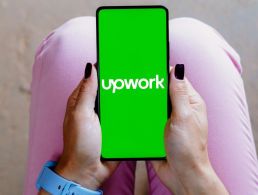It’s been a few short days since the Ghostbuster reboot was unleashed on the world, and the all-female team at its heart is getting plaudits from all sides.
To coincide with the Ghostbusters release, we’ve reached out to real-life female scientists and researchers in Ireland to learn more about their work.
Here, Niamh Kavanagh, photonics PhD candidate and science communicator at the Irish Photonic Integration Centre (IPIC), Tyndall National Institute, tells us about what a day as a researcher entails.
What is your role within this company?
I’m a PhD student funded by the Irish Research Council, so my main role is research. I have one main project that’s my responsibility to research, manage and complete. I conduct experiments, record results and, most importantly, try to interpret those results to figure out what’s going on and what to do next. Problem-solving plays a big part.
If there is such a thing, can you describe a typical day in the job?
It’s difficult to say what my typical day is because it varies so much.
Some days, I spend all my time in the lab, running tests, tweaking equipment and recording results. Other days, I’m analysing my results and writing papers, preparing reports or putting together presentations. I spend days reading, taking notes and trying to learn about my area of science. Some days are solely devoted to project management – deciding what I should do, what I need to get it done and when I’m going to do it.
The communication part of my job is much more difficult to pin down. I get to travel all over Ireland visiting schools and meeting people to talk about STEM. I also get to travel to other countries for competitions and technical conferences. I’m actually writing this from my hotel room in Trento, North Italy!
What types of project do you work on?
My PhD project is in the area of photonics and fibre optic communications. I’m trying to build a high-capacity optical communications system based on new types of optical fibres. Standard optical fibres are made of solid glass, whereas the fibres I’m using are hollow. These hollow fibres could offer several promising improvements over current fibres. My aim is to show that these theoretical improvements can be achieved in reality. It’s really interesting work.
What skills do you use on a daily basis?
As I mentioned, problem-solving is definitely a necessary skill in research. Communication is another key skill in my job. I think science communication is really important and, because of this, I volunteer for a lot of outreach activities such as visiting schools (as a Science Foundation Ireland Smart Futures volunteer) and taking part in Science Communication competitions (such as FameLab International) to improve my skills. It’s also really fun!
Due to the many varied aspects of my job, organisation is also a required skill. I need to organise the results of my experiments, manage deadlines such as paper submissions, and attend events such as conferences and competitions.
What is the hardest part of your working day?
I think it’s sometimes hard to stay motivated, especially with research. It’s so often that an experiment won’t work and you have to go back to the books and figure out why.
I also think it’s hard to fight the ‘imposter syndrome’. It sometimes feels like everyone else is really smart and you’re not. Especially when things go wrong and you can’t figure out why! You need to remind yourself that everyone has these frustrations at times – that’s the nature of research. I think you just need to push through, realise it’s OK to ask for help, and you’ll eventually get to that eureka moment!
Do you have any productivity tips that help you through the working day?
I’m a big fan of lists. I write down every little thing that needs to be done – either in my phone or lab book – and I check it off as I go. Then, when I’m feeling less motivated, I try to do the easy things on the list. I call it ‘productively procrastinating’. I tend to get a lot of stuff done when I’m avoiding other work!
Also, try to get three things done before you check your emails in the morning (although, I don’t always practice what I preach on that one).
When you first started this job, what were you most surprised to learn was important in the role?
I think I was surprised by how much time project management takes up. Previously, when I was an intern, I only worked on projects that were a summer long but my PhD project is four years. So there’s a lot of planning and organisation involved.
How has this role changed as the research sector has grown and evolved?
I have been working in the sector for about four years and I have been a PhD student for two of those. My role has naturally changed during that time, but I think that is more due to career development rather than external influences from the sector. As time goes on, I become more independent and personally responsible for my research.
From talking to past PhD students, I think there is a bigger focus today on outreach and public engagement. I think researchers have become more aware of the importance of communicating their work to the public and making science accessible to everyone.
What do you enjoy most about the job?
I love how varied it is. I love that my research is a mix of theory and hands-on experimentation.
The labs in Tyndall are brilliant and the people there are so helpful, especially my supervisor.
I’m lucky that I get the opportunity to take part in so many outreach activities, improve my presentation skills and meet so many different people from all over the world. I really want to encourage more young people (especially girls) to get involved in science and consider a career in STEM.
Also, I love to be organised! So that part of the job suits me down to the ground.
Looking for jobs in tech or science? Check out our Featured Employers section for information on companies hiring right now.




